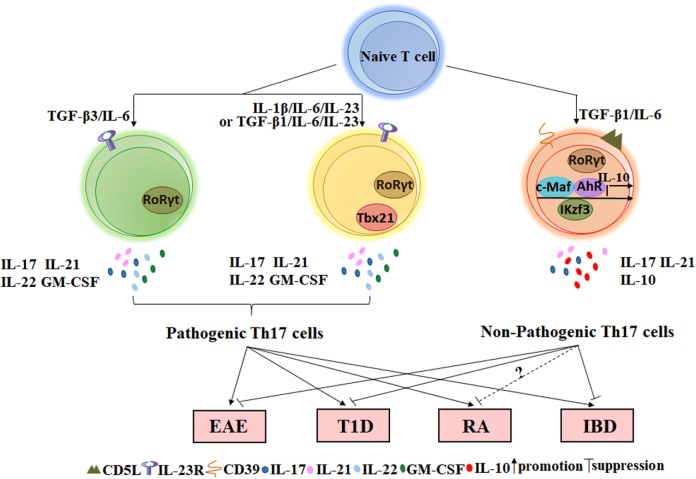Figure 1.
The role of non-pathogenic Th17 and pathogenic Th17 cells on autoimmune diseases. Naïve CD4+T cells stimulated with TGF-β3/IL-6, IL-1β/IL-6/IL-23, or TGF-β1/IL-6/IL-23 in vitro can secret inflammatory cytokines such as IL-17, IL-21, IL-22, and GM-CSF and express the specific transcription factor RORγt. Such Th17 cells that play important roles in the occurrence of autoimmune diseases are named by pathogenic Th17 cells. However, TGF-β1/IL-6-induced Th17 cells not only express RORγt but also express several IL-10-related transcription factors such as c-MAF, Ikzf3, and AhR. This type of Th17 cell expresses a low level of or lacks IL-23R but expresses a high level of CD5L/AIM and CD39 ectonucleotidases at the membrane. Adoptive transfer of Th17 cells induced by TGF-β1/IL-6 into wild-type mice does not cause EAE or T1D. In addition, a small fraction of Th17 cells in the intestine with suppressive function can also reduce IBD via IL-10 and TGF-β. However, the effect of non-pathogenic Th17 cells on RA requires further research in mice. EAE, experimental autoimmune encephalomyelitis; T1D, type 1 diabetes; RA, rheumatoid arthritis; IBD, inflammatory bowel disease.

